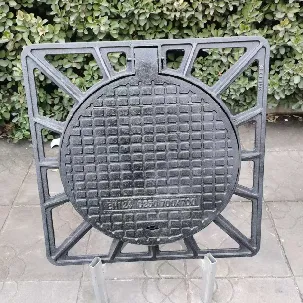Fire Safety Considerations for Gate Valves in Industrial Applications
The Importance of Gate Valve Fire Protection in Industrial Settings
In industrial facilities, maintaining safety and mitigating risks associated with fire hazards is paramount. One of the critical components in ensuring effective fire protection systems is the use of gate valves. Gate valves play a vital role in managing fluid flow and maintaining the integrity of fire suppression systems. In this article, we will explore the significance of gate valves in fire protection, their applications, and best practices for their maintenance.
Understanding Gate Valves
Gate valves are a type of valve used to control the flow of liquids and gases. They are designed to allow or block fluid flow through the pipeline, acting much like a gate that can be opened or closed. Operating with a rising or non-rising stem, gate valves are typically used in applications where a straight-line flow of fluid and minimal pressure drop is desired. Their straightforward design allows for quick opening and closing, making them an efficient choice for various industrial applications.
Gate Valves in Fire Protection Systems
In the context of fire safety, gate valves serve several essential functions. Firstly, they control the flow of water to fire sprinkler systems, hydrants, and other suppression apparatus. This control is crucial in emergency situations, where the timely delivery of water can mean the difference between containment and full-blown disaster. By ensuring that the correct amount of water reaches the necessary outlets, gate valves help ensure the effectiveness of fire suppression efforts.
Moreover, gate valves are often situated at critical junctions within fire protection piping systems. Their ability to isolate sections of a system allows for maintenance and repairs without disrupting overall operations. This isolation capability is particularly important in large facilities where firefighting systems may need to be taken offline for inspections or repairs, thus preventing potential fire hazards during these times.
Applications in Various Industries
gate valve fire

Gate valves are widely used across various industries, including oil and gas, chemical processing, manufacturing, and water treatment. In these sectors, the risk of fire is a constant concern due to the presence of flammable materials and hazardous environments. The ability of gate valves to provide reliable isolation and control makes them indispensable for safeguarding personnel and property.
For instance, in the oil and gas industry, gate valves are often used to manage the flow of crude oil, natural gas, and other combustible materials. Properly designed and maintained gate valves in these settings not only ensure operational efficiency but also enhance overall safety, mitigating the risk of leaks and subsequent fires.
Best Practices for Maintenance and Inspection
To maximize the effectiveness of gate valves in fire protection systems, regular maintenance and inspection are crucial. Operations should adhere to a stringent maintenance schedule, involving routine checks for leaks, corrosion, and proper operation. Additionally, personnel should be trained to operate these valves efficiently, recognizing signs of wear or malfunction.
During inspections, it is essential to verify that the gate valves are accessible and can be operated swiftly in an emergency. Clear labeling of valves and their functions can aid in quick response times, ensuring that they can be easily located and utilized when needed.
Furthermore, incorporating pressure tests and flow checks can help ascertain that gate valves are functioning optimally. Any identified issues should be addressed immediately to avoid jeopardizing the integrity of the fire protection system.
Conclusion
In conclusion, gate valves are integral components of effective fire protection systems in industrial settings. Their ability to control water flow, isolate sections for maintenance, and enhance overall safety cannot be overstated. By understanding their significance and implementing best practices for maintenance and inspection, industries can significantly decrease fire risks, ensuring a safer working environment for all. Investing in reliable gate valve systems is not only a regulatory requirement but also a fundamental commitment to safety and preservation of resources.
-
The Smarter Choice for Pedestrian AreasNewsJun.30,2025
-
The Gold Standard in Round Drain CoversNewsJun.30,2025
-
The Gold Standard in Manhole Cover SystemsNewsJun.30,2025
-
Superior Drainage Solutions with Premium Gully GratesNewsJun.30,2025
-
Superior Drainage Solutions for Global InfrastructureNewsJun.30,2025
-
Square Manhole Solutions for Modern InfrastructureNewsJun.30,2025
-
Premium Manhole Covers for Modern InfrastructureNewsJun.30,2025
